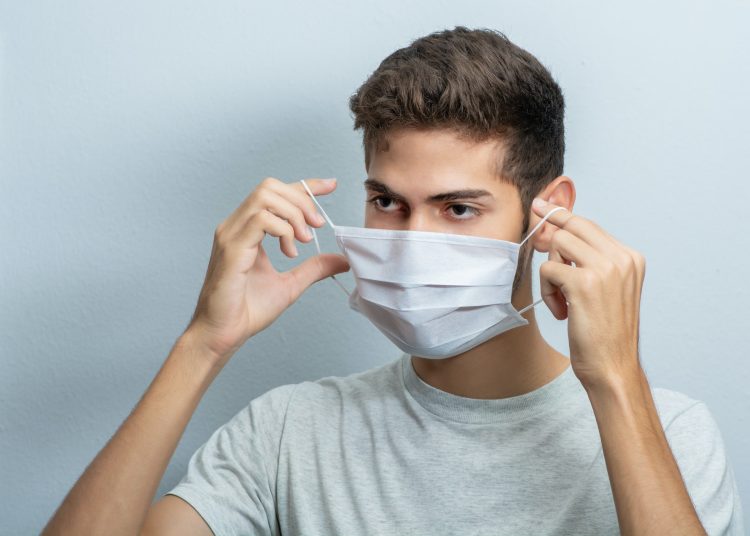Introduction by Croakey: Whether looking to the roll out of an unproven COVID-19 vaccine in Russia or Prime Minister Scott Morrison’s (short-lived) enthusiasm for mandatory vaccination, it is clear that intense political as well as public health hopes are riding on vaccine development.
But there are many reasons to be cautious about portraying COVID-19 vaccines as a “silver bullet”, says Dr Bonny Parkinson, Senior Research Fellow at the Macquarie University Centre for the Health Economy. She cautions that “masks, social distancing, and travel restrictions may be here to stay”.
Bonny Parkinson writes:
A COVID-19 vaccine is widely considered to be a silver bullet and the World Health Organization says there are about 169 candidate vaccines currently being evaluated.
However, there is no guarantee many of these vaccines will succeed due to a variety of reasons that could see them deemed unsuitable due to side-effects, poor efficacy or the virus mutating.
Vaccines tend to be cheaper than other new medicines as the development costs can be spread over a larger patient population. The cost of any COVID-19 vaccine will also depend on how Australia acquires it.
Research by the London School of Hygiene and Tropical Medicine found that the median research and development cost of a new medicine is $US985 million ($1.37 billion), taking into account the probability of failure.
However, vaccines are likely to cost more than this due to the number of participants required in clinical trials. This is necessary to identify any rare adverse events.
For example, more than 40,000 participants are being recruited in clinical trials of the COVID-19 vaccine being developed by Oxford University and AstraZeneca. The Australian Government has signed a letter of intent with the British-Swedish big pharma company to make 25 million doses of the vaccine for Australia.
The cost of vaccinating all 25 million Australians will be between $125 million and $5 billion a year.
Prior to this announcement, the Australian Government said it was in advanced negotiations with a range of companies.
It is unclear whether the agreements will involve Australia importing vaccines wholly manufactured overseas, importing bulk product and finishing and filling in Australia, or manufacturing the vaccine locally under a license arrangement with a company such as CSL.
Regardless, the impact on the Federal Budget will be significant due to the aim to vaccinate as much of the Australian population as possible.
Initial indications suggest that the cost of a COVID-19 vaccine will be between $5 and $200 per person. The cost of vaccinating all 25 million Australians will therefore be between $125 million and $5 billion a year.
However, the administration cost also needs to be considered – around $17.75 when administered by a doctor, but cheaper if done by a nurse in schools. This equates to an additional $444 million per year.
Many benefits, but no guarantees
The primary benefit of a vaccine will be reduced cases and deaths due to COVID-19, and the associated hospitalisations, testing and medical services. There will also be ongoing impacts on medical services as COVID-19 may have long-term health impacts on the heart, lungs and brain. However, these are not fully clear at this stage.
The other benefit is the ability to reopen the economy. The RBA recently forecast GDP to contract 6 per cent in 2020 due to COVID-19, equating to about $114 billion. This suggests that a COVID-19 vaccine may be value for money.
The benefits of a COVID-19 vaccine are not guaranteed. The vaccine may only reduce the severity of disease, rather than protect against infection. Even if the vaccine protects against infection, it is unlikely to be 100 per cent effective.
Furthermore, not all Australians will be able to be vaccinated due to medical conditions, and only 85.8 per cent of Australians say they will get the vaccine if it becomes available. Further trials also need to be conducted before the vaccine can be administered to children.
Around 67 per cent of the population needs to be immune to achieve herd immunity and reduce the incidence of infection. Whether this is achievable depends on the vaccine efficacy and uptake.
Unfortunately, the COVID-19 vaccine is unlikely to be the silver bullet everyone wishes it to be, and masks, social distancing, and travel restrictions may be here to stay.
Dr Bonny Parkinson is Senior Research Fellow at the Macquarie University Centre for the Health Economy
This article first appeared on Macquarie University’s Lighthouse.
PostScript from Croakey
The Federal Department of Health has issued a tender for “strategic planning consultation services” to provide an independent external evaluation of the 2020 influenza season and an assessment of system readiness for the implementation of a potential COVID-19 vaccine.
The aim is to identify what system improvements could be made in the areas of forecasting, supply, distribution and vaccine administration, as well as stakeholder engagement, communication and surveillance and monitoring activities.








